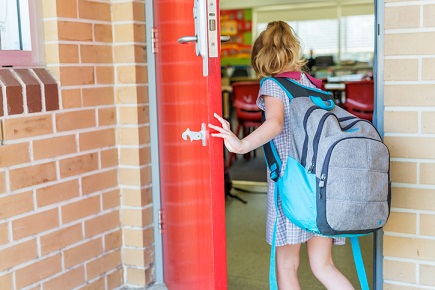
And it’s a monumental task. With 2,177 government schools, NSW has the largest public education sector in Australia and is expected to grow even more as the system prepares to accommodate an extra 164,000 students by 2031.
In June, Dizdar was the recipient of the Teachers Mutual Bank Executive Leadership Scholarship, which recognises those supporting executive leadership and professional development.
Dizdar also recently returned from Harvard where he undertook the course: ‘Leadership for the 21st Century’, which explores why leaders lead the way they do and teaches how to exercise leadership with more courage, skill and effectiveness.
Below, Dizdar shared some of what he learned from the course in the context of how educational leadership might be improved in Australian schools.
“A number of important things were learnt throughout the course including how to overcome organisation immunities to change, the importance of dignity in effective leadership and that leadership is a practice – not a position,” Dizdar told The Educator.
“The course also explained how adaptive leadership is practice of mobilizing people to tackle tough challenges and thrive.”
Adaptive leadership is a ‘distributed leadership’ model, which means leadership can be displayed by people across an organisation, not only by those in senior positions or management roles.
Dizdar said that adaptive change is uncomfortable as it “challenges our most deeply held beliefs” and suggests that deeply held values are losing relevance, bringing to the surface legitimate but competing perspectives or commitments.
“This means that adaptive challenges require a different form of leadership behaviour: adaptive leaders do not provide the answers [and do not equate leadership with expertise] and accept that a degree of disequilibrium is needed to sustain adaptive change [rather than minimising conflict and discomfort],” he said.
Dizdar also shared some insights into the new strategic direction of the NSW Department of Education, and what this means for the state’s principals.
He said the Department’s draft Strategic Plan 2018-2022 sets “an ambitious vision” for public education in NSW to be Australia’s best education system and one of the finest in the world.
“To achieve this end state all public schools will need to ensure that every student, every teacher, every leader and every school improves every year,” Dizdar explained.
“Incremental school improvement at each public school each year can only lead to better outcomes for the students we serve in public education and contribute to the lift in system performance.”
Dizdar said students need to be at the centre of all decision making, adding that “every student must be known, valued and cared for in our schools”.
“They must be engaged and challenged to continue to learn and given the strong literacy and numeracy foundations to be confident in their ability to learn, adapt and be responsible citizens,” Dizdar said.
“All our schools and school leaders have a key role in ensuring that public education in NSW is a great place to work.”
Related stories:
Exclusive: Minister highlights impact of AI on schools
‘This is not the time to have a crisis of imagination’


